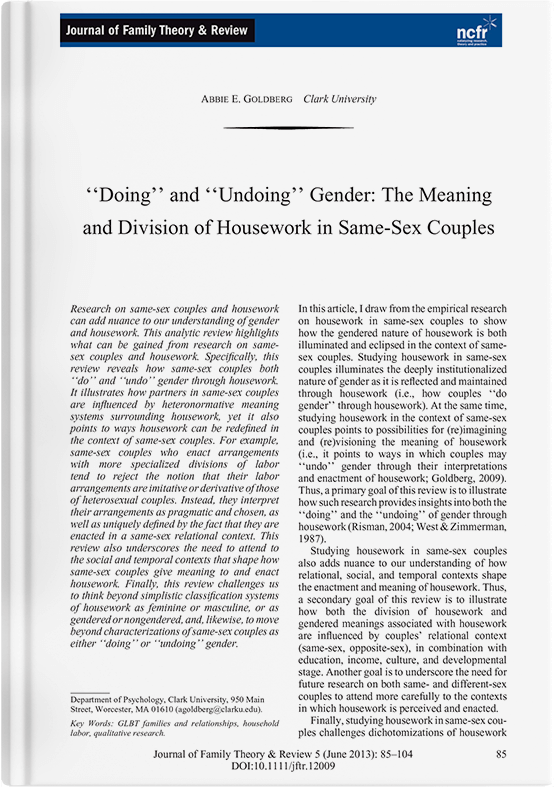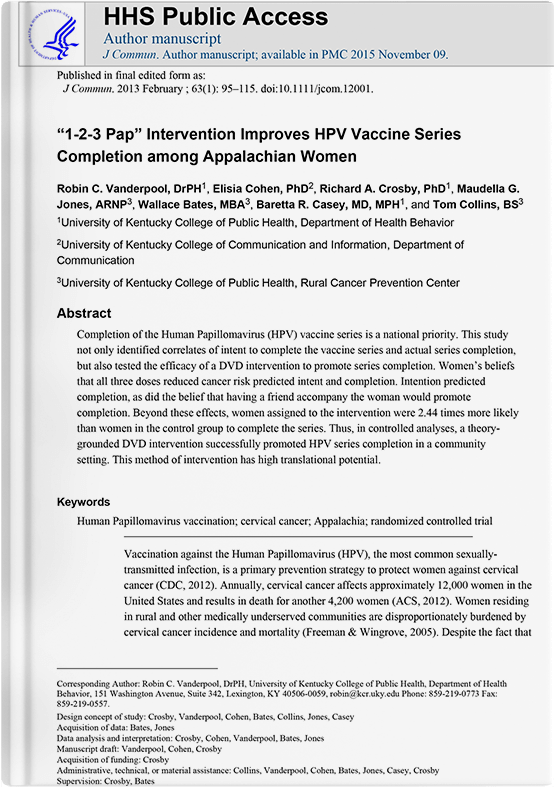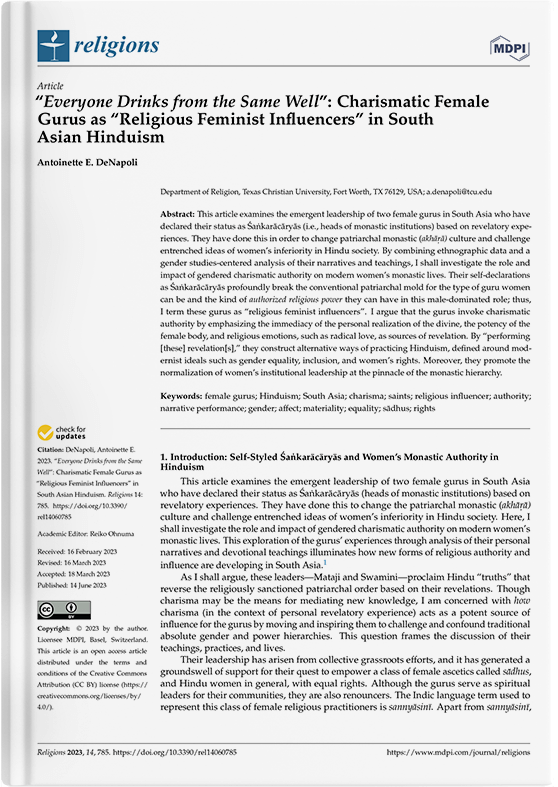‘‘Doing’’ and ‘‘Undoing’’ Gender: The Meaning and Division of Housework in Same-Sex Couples
This analytic review highlights what can be gained from research on same-sex couples and housework. This review reveals how same-sex couples both “do” and “undo” gender through housework. This review also underscores the need to attend to the social and temporal contexts that shape how same-sex couples give meaning to and enact housework. And, this …




